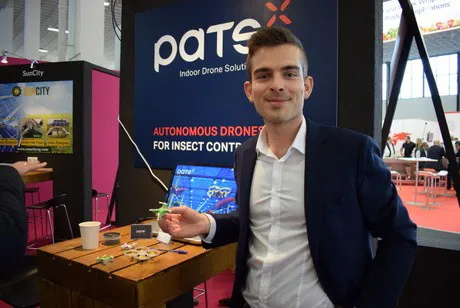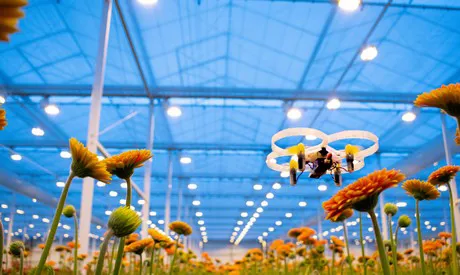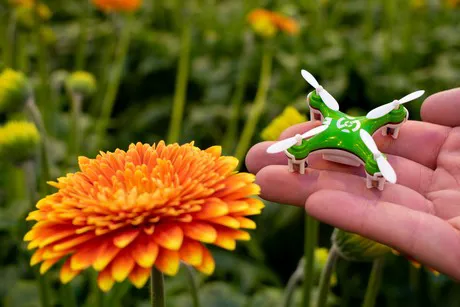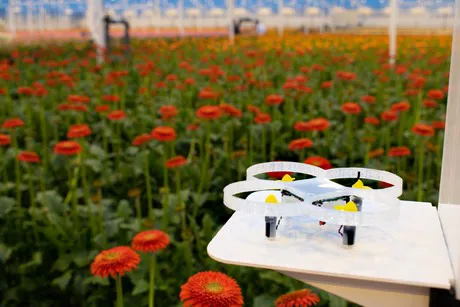A novel and a futuristic way to combat moths and other insects is by the use of drones. Start-up PATS developed these mini-drones. Bram Tijmons: "The demand for organic products is increasing, while the regulations for using insecticides are becoming more strict. This requires a sustainable way of combating insects."
 Bram Tijmons, PATS during the Fruit Logistica in Berlin
Bram Tijmons, PATS during the Fruit Logistica in Berlin
Autonomous
The grower does not have to control the drones by joystick all the time, because the system has to do its task fully autonomously without intervention of the grower. "We want to find a mechanical and sustainable solution which, by reducing crop protection agents, labor, and damage resulting from disease, changes the current crop protection."

Final Blow
"The system we are developing consists of a base station with cameras, a landing and loading pad, and multiple drones to guarantee continuous activity. The cameras observe the area around the base station and detect flying insects. The system steers the drone into the insect's flight path to cause a collision. The propellers give the final blow to the insects."

Pilots
At the moment PATS is running a small pilot at gerbera grower Holstein Flowers in De Lier. They want to run a large scale pilot starting the second quarter to show the effectiveness against pathogen populations and to measure the reduction in damage suffered by insects.

"The current focus of the team is on combating various moth species such as Duponchelia fovealis, Turkish moth, and Tuta Absoluta. We also look at Lyprauta, Sciara, and other small insect species. These insects cause large damage in the flower cultivation (gerbera, chrysanthemums, phalaenopsis), fruit (strawberry), and vegetables (tomato, cucumber)."
For more information:
Bram Tijmons
PATS
+31 (0)6 330 876 50
info@pats-drones.com
www.pats-drones.com
